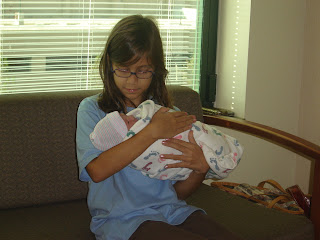It seems to be generally acknowledged now by Christian observers of postmodern culture that old "presentation style" evangelism and rationalistic apologetic approaches are largely ineffective. Tim Keller, Bill Edgar, Lesslie Newbigin, and others have all helped articulate a holistic approach to Christian witness to our age. Keller especially has described coming to faith as a long-term process in which various "mini-decisions" are made regarding the plausibility, relevance, credibility, content of Christianity.
So it was remarkable to run across the following section of Augustine's
Confessions where he describes his own holistic, multi-stage journey towards embracing Christ.
Here he describes the impression made upon him by Ambrose: "That man of God received me in fatherly fashion, and as an exemplary bishop he welcomed my pilgrimage. I began to love him, at first not as a teacher of the truth, which I utterly despaired of finding in your Church, but as a man who was kindly disposed toward me." As always, love is the greatest apologetic.
Augustine goes on to describe how he listened to Ambrose's preaching at first more out of interest in his rhetorical abilities than his Christian content. But, he found that the beauty of Ambrose's language carried the content of his message into his heart: "with the words, which I loved, there also entered into my mind the things themselves, to which I was indifferent. Nor was I able to separate them from one another, and when I opened up my heart to receive the eloquence with which he spoke, there likewise entered, although only by degrees, the truths that he spoke." Witness is not just a matter of truth, but also of beauty.
Next, Augustine clearly speaks of reaching a point where Christianity has become plausible to him: "I now judged that the Catholic faith, for which I had thought nothing could be said against the Manichean objectors, could be maintained without being ashamed of it." The gospel first had to become a real option for him before he could take it seriously.
Finally, Augustine, having come this far (and rejected Manicheism), decides to continue seeking the truth in the church, even though he has yet to grasp it fully: "I determined to continue as a catechumen in the Catholic Church, commended to me by my parents, until something certain would enlighten me, by which I might direct my course."




